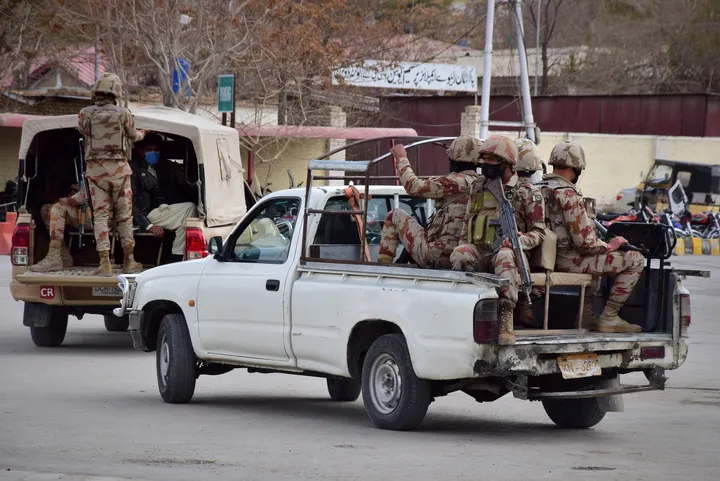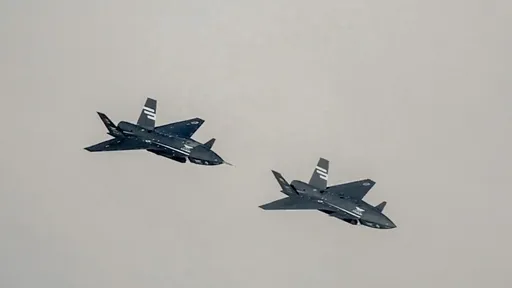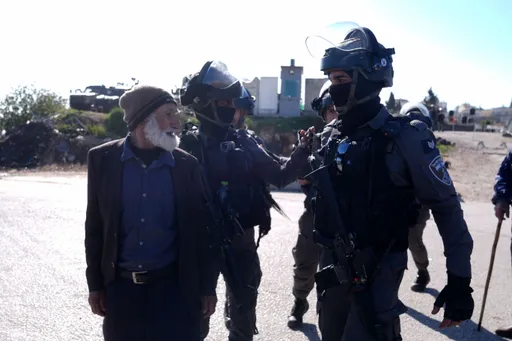Beyond the euphoria around the first-ever direct talks between the Taliban and Afghanistan’s government, there is a question of lingering ethnic tension in the war-torn country that very few are discussing.
For Ahmad Massoud, the son of legendary politician and guerilla commander Ahmad Shah Massoud, it is imperative that Afghanistan’s leaders, who are discussing peace, incorporate the wishes of all the people and not just a select few in any future system of governance.
“Afghanistan is a land of minorities. There is no (single) majority here. Therefore, it’s important we address and tolerate all ethnicities with all their differences and respect their rights,” he tells TRT World in an interview.
Ahmad is an ethnic Tajik. His father played a pivotal role in driving out the Soviet forces in the 1980s. But Ahmad Shah Massoud’s control over Afghanistan’s capital Kabul was challenged by Pashtun groups, who dominate the political landscape.
Senior Massoud, who later fought the Taliban from his base in the northern Panjshir region, was assassinated by Al Qaeda, two days before the 9/11 attacks in 2001.
Besides Pashtuns and Tajiks, Afghanistan is home to Uzbeks, Hazara and many other ethnicities. In the absence of a census, it’s hard to pinpoint the numerical strength of any group. However, it’s generally believed that Pashtuns are the single largest group.
Ahmad, 32, entered politics last year with the hope of living up to his father’s dream who wanted to bring all the tribes and communities together.
Afghanistan needs a political structure, which gives equal treatment to every ethnic and religious group, he says. “Once that happens, people will look at other factors such as Islam and citizenship, which bring them together.”
A one-man show
The intra-Afghan talks, which began last week, have given hope for bringing the decades-old conflict to an end. The discussions are at a nascent stage, and how much power the Taliban will share in a future government is anyone’s guess.
But for Ahmad, the biggest concern is how a future administration uses its authority. Whatever happens, he says, too much centralisation of power must be avoided.
Under the present constitution, the president’s office holds sway for vast spheres of decisions - something that has hampered development in most parts of Afghanistan, he says.
“The real problem in the centralised government is that it does not allow any opposition or opponents to see themselves as part of the Afghanistan regime,” says Ahmad.
“Unfortunately, I do not see either the government or the Taliban having any discussion to address this real problem.”
From governors to local officials, Afghanistan’s president has the power to appoint or remove anyone he likes in the 34 provinces. And it doesn’t stop there.
“If a school is damaged in floods in a province (far from Kabul), the principal is not authorised to pay for the repairs. Even the head of the education department of that province, the deputy minister or the minister himself do not have the authority to release the funds. The decision has to be made by the president - that’s how centralised the system is,” says Ahmad.
With locals having no say in their appointment, the provincial governors look to appease the presidential office and officials around him while ignoring issues facing the people.
Such a concentration of authority is also having an effect on the economy and how people benefit from Afghanistan's vast untapped natural resources.
The Hajigak mine in the Bamyan province that has Afghanistan's largest iron ore deposit hasn’t helped improve the lives of the local people in any way.
“That’s because the system doesn’t allow the locals to have ownership of the minerals. It belongs to the ministers, or sons of ministers, or the group, which is closer to the source of power,” says Ahmad.
Lost opportunity
President Ashraf Ghani, an ethnic Pashtun, faces accusations of promoting ethno-nationalist politics to pacify his vote bank.
In 2018, his government introduced the term “Afghan” in the identity cards despite opposition from various lawmakers who belong to the Tajik and Uzbek communities.
His decision to wear a traditional Pashtun dress when he visited the ethnically-diverse Balkh province to inaugurate a power project that same year, also raised eyebrows.
Ghani “is trying to radicalise his constituency, his party and his ethnicity so he can gather more votes to stay in power,” says Ahmad
The biggest indictment of the present form of governance lies in what happened in Afghanistan in the first decade after the US invasion in 2001, he says.
“Millions of dollars were coming in. The security wasn’t a big issue because there were hundreds of thousands of coalition forces. Then why couldn’t the government deliver?”
But Ahmad is not calling for federalism, which can pronounce ethnic divisions and where everyone gets a share of the prize. What he’s proposing is decentralised governance in which elected officials are answerable to people of a province, city and a village.
“The threat to Afghanistan is not just the Talib (Taliban), it's not just Daesh, and not the groups fighting in Afghanistan. It is the system itself.”























